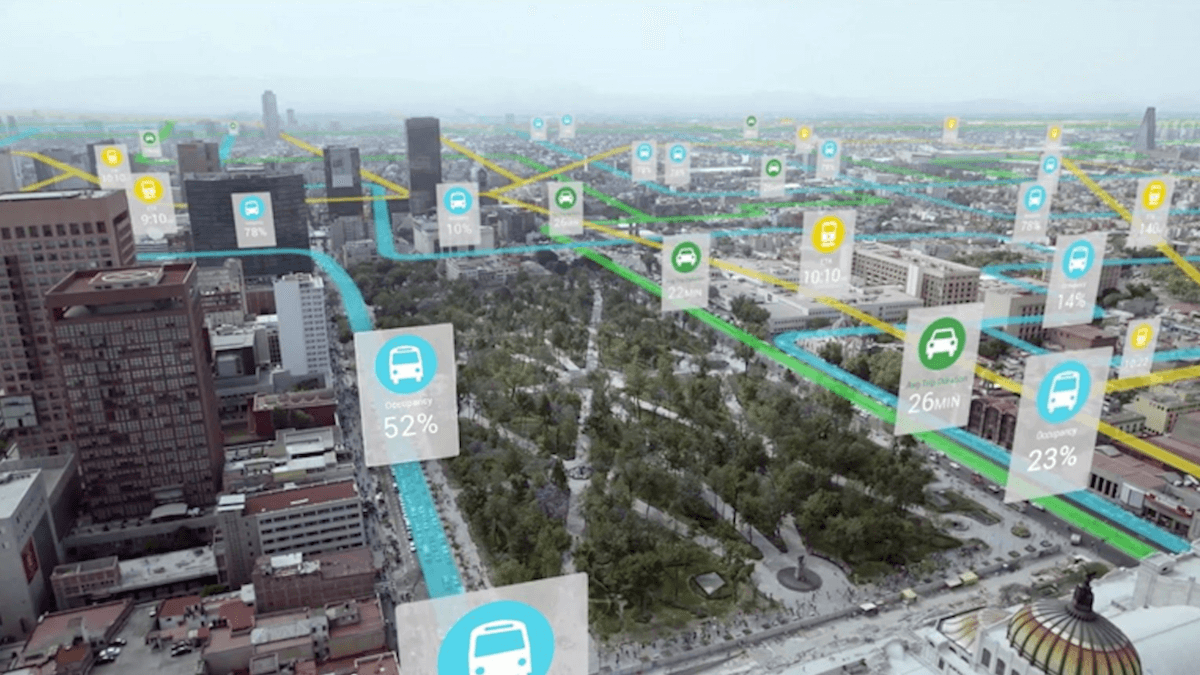Google’s acquisition of Urban Engines points to ‘The Internet of Moving Things’
The two-year-old startup is attempting to add time to space data, creating a dynamic predictive engine that is more SimCity than Google Maps.
The next major incarnation of Google Maps may be as a kind of “urban operating system.”
That’s the vision of Urban Engines, a Los Altos, California-based two-year-old startup that the tech giant has acquired. Two of the four co-founders are former Google engineers; deal terms were not made public.
If their vision is implemented in Google Maps or elsewhere, marketers’ and retailers’ view of the world could be transformed from a relatively static environment of fairly discrete data points to one that is as full of ebbs and flows as, say, the internet.
Observers of the acquisition have described Urban Engines as a “location analytics” firm, but that barely describes its intention, as indicated in the blog post announcing the acquisition:
“One fundamental challenge is how to piece together a high-fidelity, real-time ‘pulse’ at a city-wide scale, from […] anonymized, aggregated space/time data (e.g, location and timestamps). For us [computer science] geeks, space/time data is a new ‘data type’ with exciting new scaling and algorithmic challenges. Over the past few years, we created Warp — a powerful, new space/time engine that stitches together millions of commuters and vehicles with special algorithms and cloud power.”
In another post, the company notes that this space/time data — in a world increasingly populated by tracking and sensing devices — consists of the movement of “each car, bus, bike, parcel, delivery service, and/or person [that] navigates busy city streets” :
“Unlike previous maps that merely account for space, e.g., the distance between San Francisco to LA, Urban Engines’ Space/Time engine factors in time, addressing how any given object moves through a system and within a timeframe, and with real-world context, like weather, events, and daily traffic fluctuations.”
In other words, imagine a Google Maps that maps not just space, and not just time to travel that space, but all the dynamic dimensions of moving through the real world.
Like the effect of a Red Sox game in Boston’s Fenway Park on the vehicular and pedestrian traffic in nearby Kenmore Square, complicated by a sudden downpour. The flow of the world’s traffic only appears to be chaotic. Urban Engines aims to predict the movement of those intersecting layers of chaos — people, cars, weather, scheduled events, traffic jams and so on.
To date, Urban Engines says, its engine has been used to optimize delivery routes. While Google Maps already calculates various routes and the time required, and notes traffic issues, a post-Urban Engines map tool might resemble predictive analysis married to a network optimization tool.
And, once Google Maps layers time, weather conditions, scheduled events nearby, the pattern of traffic jams and other data onto space and traffic conditions, it’s not hard to imagine that location-based targeting will track the same dynamic data feed.
Already, a variety of mobile marketers specialize in sending ads “at the right moment,” which they currently calculate as location, event, person’s profile and similar data points.
But those are relatively discrete bits of information, overlaid to determine that the targeted user is at a hockey game in Philly on a Monday night. A Google Maps Space/Time Engine could make “moment targeting” part of a dynamic network flow that predicts, for instance, you’re going to be stuck in traffic for only 20 minutes after the game — instead of an otherwise expected hour — because many fans arrived by public transportation.
Add in predictive analysis that estimates the effects of dozens, if not hundreds, of real-world movement and time variables, plus A/B testing that determines which ad works best for which dynamic stack of conditions, and today’s “right moment” intersection of several data points will seem far, far away.
Urban Engines has already coined a great name for this new kind of space/time mapping: the Internet of Moving Things.
Opinions expressed in this article are those of the guest author and not necessarily MarTech. Staff authors are listed here.
Related stories
